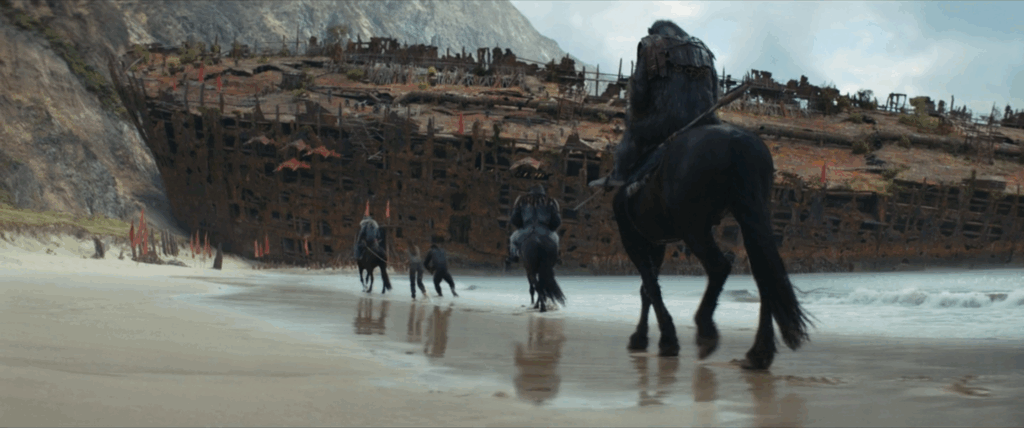Kingdom of the Planet of the Apes (2024)
Kingdom of the Planet of the Apes may not possess the rich character work of the other prequels, yet Wes Ball’s development of this majestic, tribal world through the legacy of its ancestors is admirable, examining splintered ideological factions that exploit sacred doctrine for their own selfish purposes.

